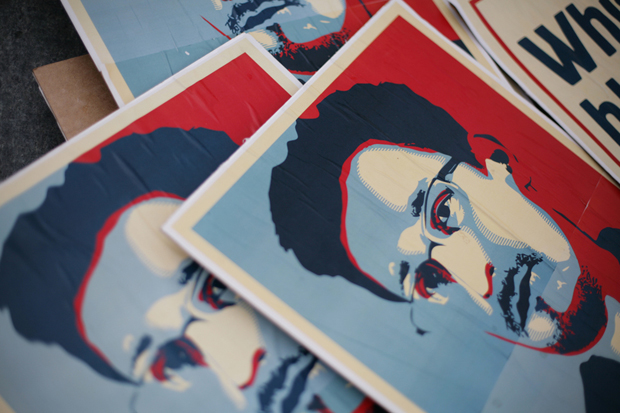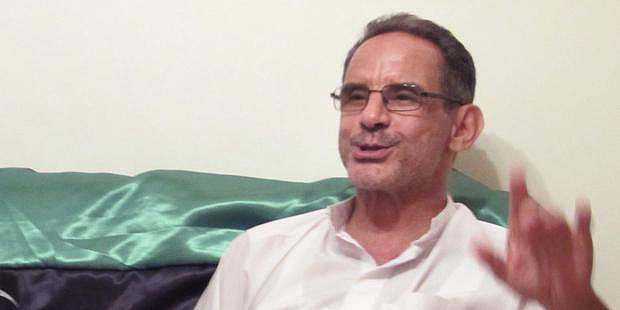Irresistible: Espionage, dissent and NGOs

(Photo: David von Blohn / Demotix)
Edward Snowden’s revelations on the voracious appetite of spying on all and sundry by the National Security Agency and allied agencies should not give pause for too much comment, other than to affirm a general premise: Activists and non-government groups are to be feared. Non-profits are seen as potential threats, though what to is sometimes unclear. Any government worth its salt should be afraid of its citizens – the latter must make the former accountable; the former must hold to the contractual bargain with citizens.
Last week, Snowden revealed to members of the Council of Europe via videolink from Moscow that such groups as Human Rights Watch and Amnesty International were high on the list of surveillance targets. “The NSA has specifically targeted either leaders or staff members in a number of civil and non-governmental organisations… including domestically within the borders of the United States.” He also delved further into such data mining programs as XKeyscore, a technology representing “the most significant new threat to civil liberties in modern times.” Analysts, using the program, can select the metadata of an individual, and find content, “without judicial approval or prior review.”
Dinah PoKempner, general counsel at Human Rights Watch, responded that, if true, it was “indicative of the overreach that US law allows to security agencies.” Such conduct “would again show why the US needs to overhaul its system of indiscriminate surveillance.” Indeed, it would fly in the face of a long held, if somewhat erroneous belief, that the US State Department actually treasures its human rights defenders, seeing them as the vanguard of reform rather than a cabal of troublesome dissent. Human rights defenders in allied countries, for instance, pose a different set of problems.
A cursory glance at the guidelines of the US State Department on supporting human rights reveals how, “Protecting and supporting human rights defenders is a key priority of US foreign policy…. The Department’s objective is to enable human rights defenders to promote and defend human rights without hindrance or undue restriction and free from fear of retribution against them or their families.” Stirring stuff. There is even a reference to US support for the UN Declaration on Human Rights Defenders, adopted by consensus of the General Assembly in 1998. Various strategies and techniques of encouragement are then discussed.
The guidelines even set out who human rights defenders are – those who “working alone or in groups, who non-violently advocate for the promotion and protection of universally recognised human rights and fundamental freedoms.”
Evidently, these guidelines did not quite cross the tables of those involved in the surveillance complex. This may well be partly due to bureaucratic bungling – the irresistible growth of the espionage complex, but it may just as well be seen as consistent: after all, the NSA watches, and the State Department disposes. The two occasionally seem to meet in fumbling circumstances.
The NSA is far from the only organisation engaged in the business of spying on activist groups and NGOs. A November 2013 report by Centre for Corporate Policy, a Washington, D.C. think tank, titled Spooky Business: Corporate Espionage Against Nonprofit Organizations, shows that such a process is addictive and systematic across centres of power. Aversion to dissent is endemic, and it attracts birds of a feather in both government and corporate circles. According to the report, the precondition for such espionage is that the non-profit organisation in question “impairs or at least threatens a company’s assets or image sufficiently.” The targets are varied, including “environmental, antiwar, public interest, consumer, food safety, pesticide reform, nursing home reform, gun control, social justice, animal rights and arms control groups.”
The report looks at the antics of numerous entities hungry for data on their threatening quarry. It might be the Society of Toxicology and Information Associates against animal rights activists. It might be Stratfor and Coca-Cola against People for the Ethical Treatment of Animals. Or BAE against Campaign Against the Arms Trade.
The gold target here seems to be Greenpeace, object of keen interest by the private security firm Beckett Brown International (BBI), retained by Dow Chemical, the world’s largest chlorine producer. The world’s largest operator of nuclear power plants, Électricité de France, has also hired a set of private intelligence firms to keep an eye on the activities of the organisation, be it through good old hacking or conventional spying. In November 2011, EDF was actually fined €1.5 million for “industrial espionage”, and two of its executives jailed.
Activities include infiltration, cultivation, deception. Trash bins are searched. Offices are cased, phone records of activists collected, confidential meetings breached. Names are blackened; the severity of disasters – environmental, notably – are minimised. According to Russell Corn, the managing director of Diligence, a corporate intelligence agency, anywhere up to 25 per cent of an activist camp will be “taking the corporate shilling” (New Statesman, Aug 7, 2008). An inflated figure, perhaps, but worth keeping in mind.
Such behaviour illustrates all too well that there is a conflict of an international, global dimension between established centres of corporate and government power against those who would reform, or at the very least challenge, them. When convenient, corporate and government interests will collude and find accord. There is even an argument to be made that their functions and interests have become, at points, indistinguishable.
Nothing illustrates this better than the privatisation phenomenon of intelligence activities, where traditional espionage is outsourced and redeployed with contracting agencies and their employees. The private investigative firm Hackluyt, retained by BP and Shell, has a direct line to MI6. Some irony, then, that Snowden was working for one such agency when he acquired his invaluable treasure trove of surveillance activities.
This article was posted on 16 April 2014 at indexoncensorship.org


